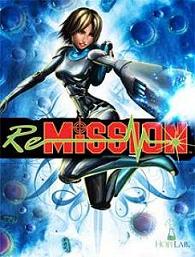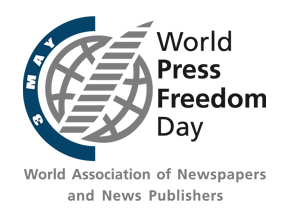Incarceration rates quintupled over the last third of the 20th century, and conventional wisdom is that it must have something to do with a corresponding rise in crime. Robert Perkinson, […]
All Articles
After watching a few episodes of the new HBO show Treme, I have discovered that even though I am African American, I seem to have more in common with Creighton […]
Atheism makes for “great blood sport“—at least that is what writer Yann Martel believes. But the writer is far more interested in what cannot be reasoned, and in his Big […]
How many times have you felt guilty when someone talks about the grand crises in the world: water, energy, food, poverty? You assiduously recycle your bottles, cans and paper, but have a nagging feeling you should be doing something more. Don’t beat yourself up. It’s hard to help when you don’t understand the exact nature of the problem. Now there’s a way: games. Or to be more accurate, serious games. Yes, it sounds like an oxymoron but serious games are becoming the most popular tool to engage citizens to collaborate and solve world challenges.
A growing number of artists are “rummaging through the life sciences in search of materials, ideas, cosmic verities, tragicomic homilies, personal agency, a personal agent, a way to stand out in the crowd.”
“How could a writer whose prose breathed in life so fully take his own?” asks Michael O’Donnell of David Foster Wallace. A new book tries to illuminate the writer via a five-day road trip.
“It’s time for Democrats, even liberal Democrats, to start looking at unions and unionism with deep skepticism,” writes Mickey Kaus.
“When parents today worry about their child not meeting developmental norms, especially for motor skills, they’re too often worrying needlessly,” writes Nicholas Day.
The idea that one’s disposition can be analyzed by looking at their handwriting is considered spurious, yet medical graphology—the use of handwriting to detect disease—has diagnostic validity.
Time “flows at different speeds in different places and that is the key to traveling into the future,” writes Stephen Hawking, who speculates about how we might construct a time machine.
Scientists have discovered that shooting high-powered lasers into the sky can create the germ of a rain cloud, opening the door to eco-friendly cloud manipulation.
John Tierney looks at research indicating that male chimpanzees use “tools” (crackling leaves) to show females that they are ready for sex.
“If the United States is to have a sustainable toehold in Asia, Washington has to start paying serious attention to some countries in the region that are not China or India,” writes Ernest Bower.
When it comes to compliments “we often hear what we want to hear,” writes Elizabeth Bernstein. If we are feeling secure it’s easy to register the praise, but not in times of self-doubt.
Nick Kristof has an idea for fixing the Catholic Church: Turn it “upside down”! Take power away from the “old boys’ club” at the Vatican, where a dark cloud hovers […]
“If a regime is hellbent on turning a journalist into a spy,” Paul Martin writes, “it can simply put him on trial in a closed court, announce a verdict, list […]
The Human Body Shop may be just around the corner: In 50 years, the advancing technologies of medicine and tissue engineering could change everything.
Today marks the first installment of Big Think’s newest series, “Moments of Genius,” sponsored by Intel. We sat down with math and science thought leaders—from the inventor of the very […]
Today Big Think is pleased to welcome the very talented Maria Popova, of Brain Pickings fame, to our regular blogging team. Known for “curating eclectic interestingness” from around (and beyond) […]
“The idea of America is that we all have our own unique voices…and that’s the same as guitar.Guitar is not an instrument that’s stuck in a canon, or stuck in […]
“The secret of excellent proofreading is caring intensely about getting things right and loathing error with an intensity that perhaps only fascism or an alimony-collecting ex-wife deserves,” writes Joseph Epstein.
“The age-old atavistic lust for war … never really goes away,” writes Evan Thomas. “It is too fundamental to the male psyche.”
“Europe used to be, within the living memory of many of us, the cockpit of world power, prosperity and prestige. Today it is raw material for an ouija board,” writes Walter Lacquer.
While acknowledging the progress over the past 50 years that was enabled by birth control pills, Geraldine Sealey thinks we now need new methods beyond hormonal contraception.
Former U.N. ambassador John Bolton writes that “It is hard to conclude anything except that the Obama administration is resigned to Iran possessing nuclear weapons.”
New studies indicate that combining exercise activities (like walking or biking) with nature—even for just five minutes—can boost mental health and well-being.
New data suggest a “rebalancing” of the global economy. Domestic spending in the developing world is beginning to replace export-buying American consumers as a growth engine.
“The proper function of spies is to remind those who rely on spies that the kinds of thing found out by spies can’t be trusted,” notes Malcolm Gladwell.
Recent research suggests that people all over the world might be modeling themselves after characters on soap operas—and that their lives are improved as a result.
Group theory “bridges the arts and sciences,” writes Steven Strogatz. “It addresses something the two cultures share—an abiding fascination with symmetry.”









